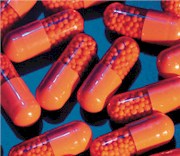Why do I need to take ACE inhibitors?
ACE inhibitors are used to treat congestive heart failure (CHF) and high blood pressure (hypertension). You may also be given ACE inhibitors after you have had a heart attack, because some studies have shown that these medicines may prevent further damage to the heart muscle. ACE inhibitors are also prescribed for certain kinds of kidney problems, especially if you have diabetes.
How do ACE inhibitors work?
- These medicines block an enzyme in the body that is responsible for causing the blood vessels to narrow. If the blood vessels are relaxed, your blood pressure is lowered and more oxygen-rich blood can reach your heart.
- ACE inhibitors lower the amount of salt and water in your body, which also helps to lower your blood pressure.
How much do I take?
There are many different kinds of ACE inhibitors. The amount of medicine that you need to take may vary. Talk to your doctor or pharmacist for more information about how and when to take this medicine.
What if I am taking other medicines?
Other medicines that you may be taking can increase or decrease the effect of ACE inhibitors. These effects are called an interaction. Be sure to tell your doctor about every medicine and vitamin or herbal supplement that you are taking, so he or she can make you aware of any interactions.
The following are some of the medicines that can interact with ACE inhibitors. Because there are so many kinds of medicines within each category, not every type of medicine is listed by name. Tell your doctor about every medicine that you are taking, even if it is not listed below.
- Diuretics
- Medicines or vitamin supplements that contain potassium
Also, do not drink alcohol until you have spoken with your doctor. Taking alcohol and ACE inhibitors together can lower your blood pressure too much, making it more likely that you may become dizzy or faint.
What else should I tell my doctor?
Talk to your doctor about your medical history before you start taking ACE inhibitors. The risks of taking the medicine need to be weighed against its benefits. Here are some things to consider if you and your doctor are deciding whether you should take an ACE inhibitor.
- You have allergies to other medicines, especially if the allergic reaction includes a hoarse voice; swelling of your face, mouth, hands, or feet; and trouble breathing.
- You are thinking of becoming pregnant or you are pregnant.
- You are breast-feeding.
- You have other medical problems, such as diabetes, heart disease, kidney disease, liver disease, or lupus.
- You have had a recent heart attack.
- You have had a kidney transplant.
What are the side effects?
Sometimes a medicine causes unwanted effects. These are called side effects. Not all of the side effects for ACE inhibitors are listed here. If you feel any other effects, you should check with your doctor.
Common side effects:
- A dry cough, which may make it hard to talk.
Less common side effects:
- Diarrhea.
- Headache.
- Loss of taste or a taste of stainless steel in your mouth.
- Loss of appetite.
- Upset stomach.
- Skin that is sensitive to sunlight.
- Feeling very tired.
- Dizziness, lightheadedness, or fainting.
- Fever.
- Joint pain.
- Numbness or tingling in hands or feet.
Rare side effects:
- Fever and chills.
- A hoarse voice.
- Swelling of your face, mouth, hands, or feet.
- Trouble swallowing or breathing.
- Severe upset stomach and throwing up.
- Unusual bruising.
- Yellow eyes or skin (called jaundice).
Tell your doctor right away if you have any of these side effects. Do not stop taking your medicine unless your doctor tells you to. If you stop taking your medicine without checking with your doctor, it can make your condition worse.
See on other sites:
American Heart Association
www.heart.org/HEARTORG/Conditions/HighBloodPressure/
Types-of-Blood-Pressure-Medications_UCM_303247_Article.jsp
Types of Blood Pressure Medications
Safemedication.com
A consumer-based site by the American Society of Health-System Pharmacists that
provides information about all types of medicines as well as safety tips for
their proper use. The site's search feature lets users search medicines by the
brand or generic name.
Updated August 2016



